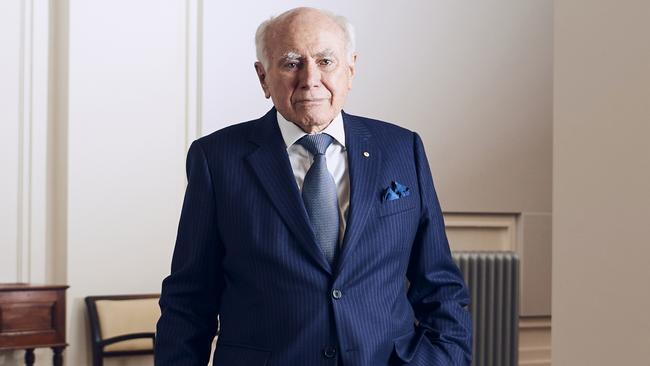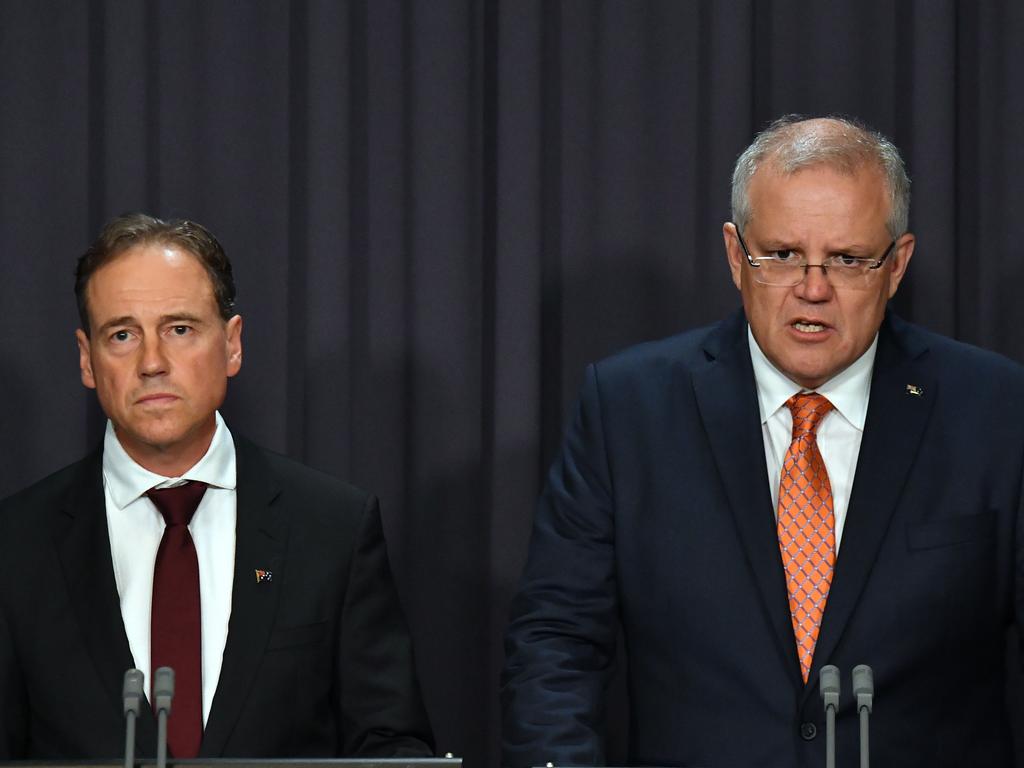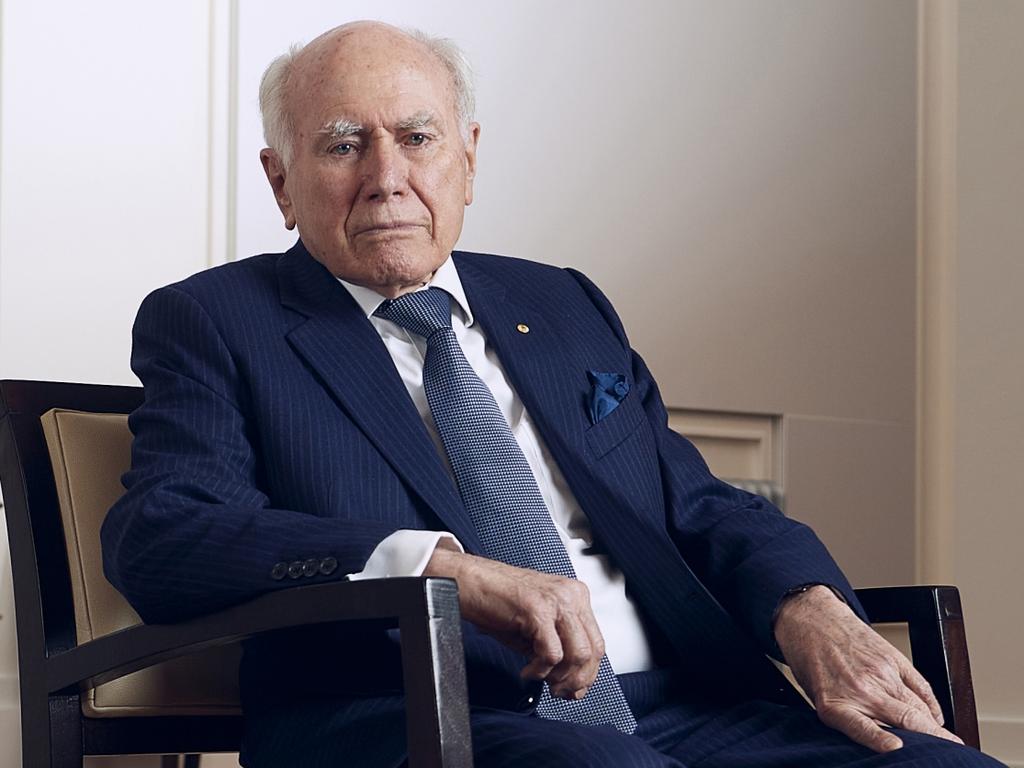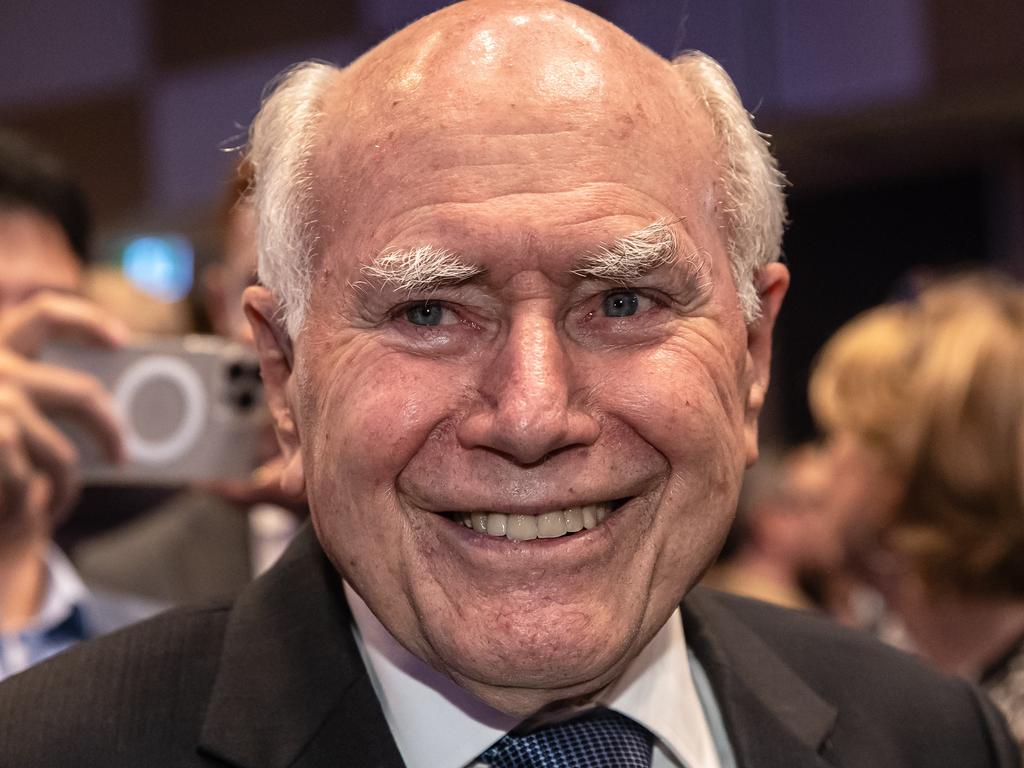We didn’t do the work … how we got election so wrong, says John Howard
Scott Morrison’s failure to present a clear, compelling vision for the future was the central reason for the Coalition’s landslide election defeat, says John Howard.

Scott Morrison’s failure to present a clear, compelling vision for the future was the central reason for the Coalition’s landslide election defeat, according to the party’s second-longest serving prime minister, John Howard.
“The single largest failure of the Coalition was that it did not present to the Australian people a clear policy manifesto for the future,” Mr Howard writes in a new book, A Sense of Balance, published next week.
“The Liberals and Nationals kept saying it was a clear choice, but never spelt out what the choices were, beyond generalisations that they were superior on economic management and national security.”
Mr Howard also takes a swipe at two senior Liberals – former foreign minister Marise Payne for not defending Mr Morrison well enough, and NSW deputy leader Matt Kean for being disruptive during the campaign.
In a separate interview, Mr Howard praised the Coalition’s pandemic response, economic management and national security policies but said its overall performance was “very mixed”, and not having a forward-looking agenda “hurt us very badly”. In a further damning assessment, Mr Howard said the Coalition had always been a party that advocated economic reform, noting areas such as workplace relations and taxation, but it had failed to advance any major economic change over its last two terms.
“It was instructive that in 2016 the Coalition, then in government, did not lay out further economic reforms and lost 14 seats,” Mr Howard writes. “In hindsight there was a warning in this for the Liberals, which they clearly did not heed.
“For the past five years, the Coalition baulked at any major economic reform, preferring to rely on the generalised claim, certainly valid, that it has been a better economic manager in government. Such an approach always had a shelf life, and it was reached at the last election.
“The Liberal and Nationals parties must present a substantial economic plan at the next election. At a minimum, taxation and industrial relations must be addressed in that plan. But it should go beyond those issues.”
Conceding that Mr Morrison “mishandled some issues” regarding women, Mr Howard notes that Senator Payne “failed to defend” him “against unjustified criticism”.
However, he writes that Mr Morrison’s “attack” on former Australia Post chief executive Christine Holgate, who gifted luxury watches to executives, was “most egregious”.
“(Ms Holgate) was a highly successful professional woman respected in the business community who, on any fair analysis, had not done anything wrong,” Mr Howard writes. “It had the appearance of the prime minister using his office to bully Holgate into resigning her position.
“That was a damaging event.”
Mr Howard is critical of the former government’s judgment and argued that it “suffered politically” by not presenting its proposed integrity commission bill to parliament and “took far too long” to put together its Religious Discrimination Bill, leaving it in “disarray” on the issue at the election.
The Liberal elder also argues there was no justifiable reason for Tony Abbott’s removal by Malcolm Turnbull in 2015. He expressed disappointment in Mr Turnbull’s refusal to endorse his local Liberal MP, Dave Sharma, but does not support moves to expel him from the party. Although Mr Howard pledged to introduce an emissions trading scheme if re-elected in 2007, he is “agnostic” on climate change and wary of “alarmist predictions”.
He writes that it was a “mistake” not to oppose the Greens-Democrat-initiated prohibition on nuclear power in 1998, and now supports its development as an emissions-free energy source.
In a deconstruction of the modern Liberal Party, Mr Howard writes that it has become less representative of the community, is dominated by political apparatchiks who have little experience or interests outside politics, and bitter internal factionalism has “poisoned” its “body politic”.
He is especially critical of factional game-playing in NSW and lashes Mr Kean, the NSW Treasurer, for making a “rogue intervention”, destabilising the campaign by saying the party’s candidate for the federal seat of Warringah, Katherine Deves, should have been disendorsed.
The Liberal Party, he says, must remain custodian of the liberal and conservative traditions. He rejects suggestions the party should become more conservative or more liberal. “Beware of false choices,” he writes. “We do best when we do have a broad church. We can accommodate both streams.”
The book argues that objectivity and perspective are essential in politics and “compromise” and seeking “a middle way” should continue to guide policy-making. Bipartisanship and civility towards opponents should be valued.
Mr Howard also revealed to The Weekend Australian that he wrote a letter to Anthony Albanese congratulating him on becoming prime minister.
A Sense of Balance (HarperCollins) is published on Wednesday.








To join the conversation, please log in. Don't have an account? Register
Join the conversation, you are commenting as Logout